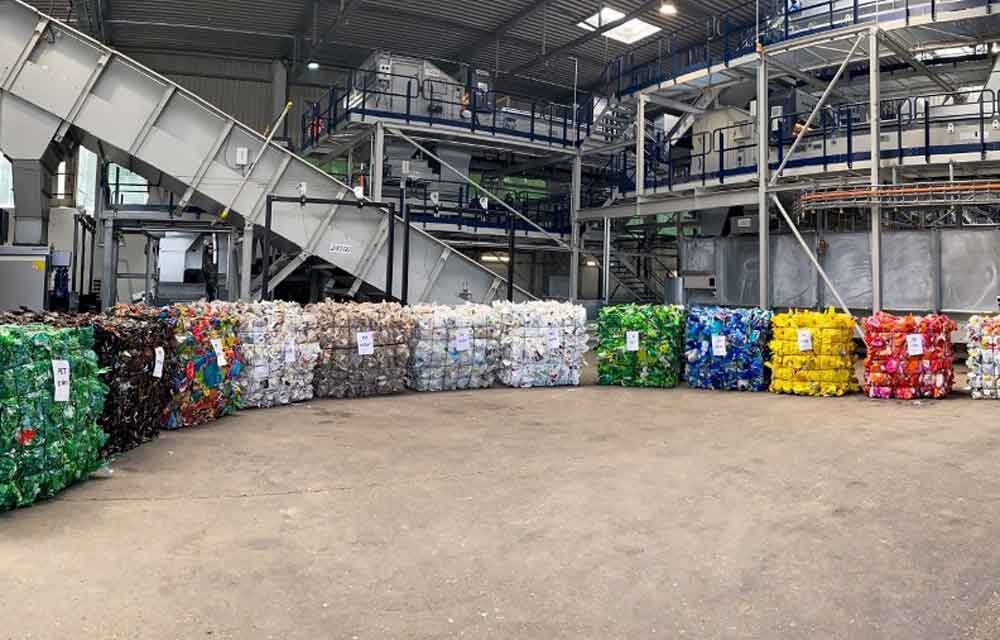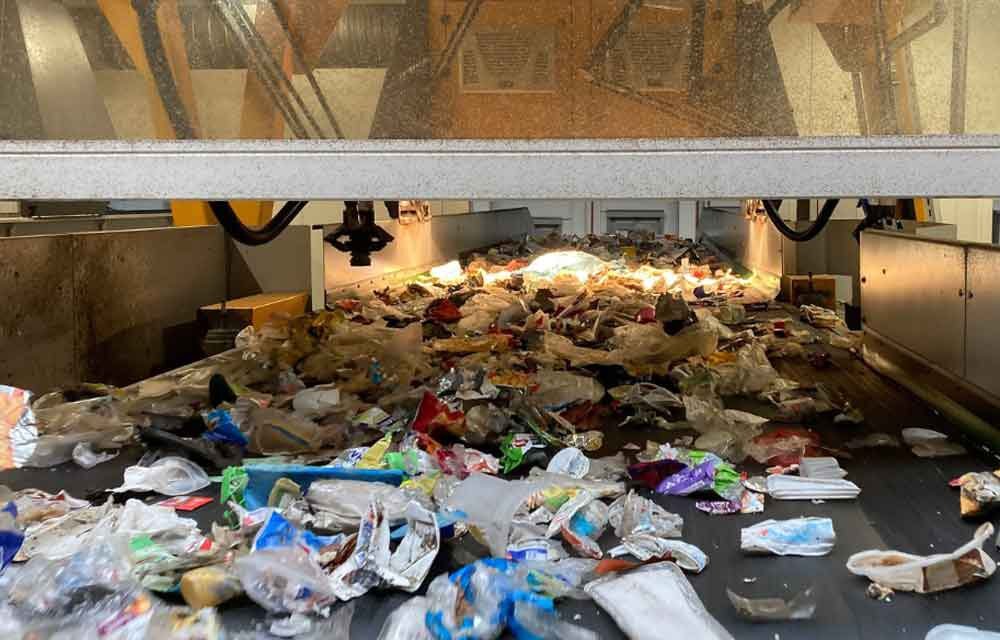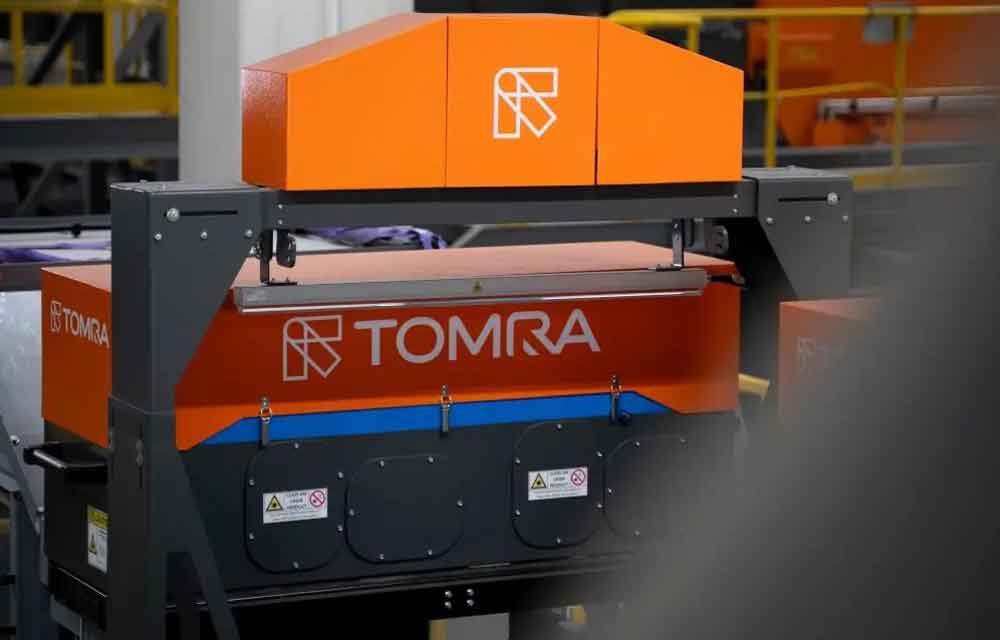The circular economy is an important tool on the path to making “Green Europe” a reality. This means that any resources utilised must be kept in circulation as much as possible. Especially in the case of packaging, which accounts for the largest part of plastic waste, only a small part of the material is actually circulated.
Usually, this failure is due to technical and economic challenges. The possibilities of artificial intelligence (AI), which is currently developing at a lightning pace, can contribute to a functional circular economy.
Today, AI technology is already being used to decrease heaps of waste and improve recycling processes. The application areas for AI within recycling and the circular economy are broad. While the waste is being sorted, intelligent systems with cameras and sensors can already detect which materials are currently being conveyed on the sorting belts.
They cannot just distinguish plastic, paper and metal, but also different kinds of plastics which are then automatically sorted into the right flows. Apart from sorting waste, AI can also monitor the energy consumption of recycling plants, check the quality of recyclates or increase plant efficiency through predictive maintenance.


Last summer, Remondis Recycling and RE Plano put a new sorting plant into operation in Bochum, the first in Europe where AI technology can sort up to six different colours for optimum preparation of incoming material. This enables Remondis to produce a recyclate without any deviations in colour or material, which is then further processed by the plastics processing industry.
The incoming material in the Bochum plant is sorted by material and colour. The sorting plant can process PE-HD, polypropylene and PET packaging from sorting light packaging materials in particular, but also plastics from sorting commercial waste.
This colour and material sorting is unique in Europe and works using multi-phase photo sensor recognition which allows the incoming material to be sorted according to its properties and, for example, distinguishes between mono-layer and composite packaging. With cutting-edge AI technology, the sorting plant in Bochum is the first to be able to sort up to six different colours.
Innovative sorting technology through deep learning
Recycling specialist Tomra has now introduced a sorting technology based on deep learning. It uses artificial intelligence to sort PET, PP and HDPE flows according to whether they have had contact with food or not. This technology, called GAINnext, is available as an optional add-on to the company’s multifunctional sorting system Autosort, and is intended to further improve the performance of sensor-based sorting systems.
Until now, the sorting of food-grade plastics has been a challenge for the recycling industry, as packaging for food and non-food often is made of the same or very similar material. Conventional sorting systems therefore have a difficult time distinguishing and sorting the packaging.
The sorting system Autosort with GAINnext combines object identification with traditional sensor-based sorting.

With the GAINnext technology by Tomra, Autosort systems can now also identify materials which conventional optic waste sensors can only classify with difficulty or in some cases not at all.
By combining near-infrared, visual spectrometry and other sensors with deep learning technology, the company claims to have now developed the most accurate solution on the market. It is said to already reach a degree of purity of more than 95% for packaging applications in factories in the United Kingdom and Europe.
Tomra has also developed two non-food applications which supplement the company’s existing GAINnext ecosystem: one application for de-inking paper for clean paper flows and a PET application for single-material PET bottle flows with an even higher degree of purity.
“We are convinced that the most recent AI developments have what it takes to re-define the recovery of raw materials as we know it. Thanks to the clever use of deep learning, GAINnext has made sorting food-contact materials and bottle-to-bottle qualities possible – these are tasks which have posed great challenges to our industry for many years.
AI is thus driving the circular economy forward at a point in time where it is most needed: Regulations are becoming more strict and customers are increasingly demanding technologically superior solutions.” Dr. Volker Rehrmann, Executive Vice President and Head of Tomra Recycling
Solving complex sorting tasks
“The use of deep learning technology not only automates manual sorting, but also allows the industry to gain highquality recyclates through extremely fine sorting”, explains Indrajeed Prasad, Product Manager Deep Learning at Tomra Recycling.
“Thanks to its ability to recognise thousands of objects within milliseconds by their material and shape, GAINnext solves even complex sorting tasks. Deep learning software also offers the possibility to easily adapt to future market requirements.”
Among the first customers for the new applications are plants like that of Berry Circular Polymers in Leamington Spa, Viridor Avonmouth in Bristol, which is the largest multi-polymer plant in the United Kingdom, and the French Nord Pal Plast plant in Lesquin, which belongs to the globally active Dentis group.
Tomra is currently strengthening its position in the AI sector, also through its ownership of 25 percent of the start-up PolyPerception. The young company offers AI-based monitoring of waste streams and is said to be one of the most innovative start-ups in the sorting and recycling landscape. Tomra wants to use this alliance to broaden its portfolio – including sorting systems, a cloud-based data platform and an innovative solution for analysing materials.
The solution by PolyPerception measures data at key points in the sorting process. Operators of sorting plants can thus continuously monitor the quality of sorted flows and any losses of the desired material in the rest flow and make decisions based on qualitative data.
In addition, the analysis method acts as a kind of automated compliance system to ensure that regulations for recycling food and local legal requirements are adhered to. As legal regulations are becoming more and more strict, PolyPerception hopes to see continued rising demand for its transformative technology.
The Bremen start-up WasteAnt wants to turn waste into a more valuable resource using AI-based waste quality management and thereby optimise waste flows. The start-up’s AI technology continuously analyses and quantifies incoming material flows and thus can recognise disruptive materials, retrace steps along the added value chain and ensure that the plant runs more efficiently. Continuous checking of the material flow provides information about the quality of the waste shipment.
The aim is to recognise unusable waste at or even before delivery and to reroute it accordingly to different plants. In 2023, the young company received the Bremer Gründerpreis award for founders for its AI-based technology for the better use of waste material.

